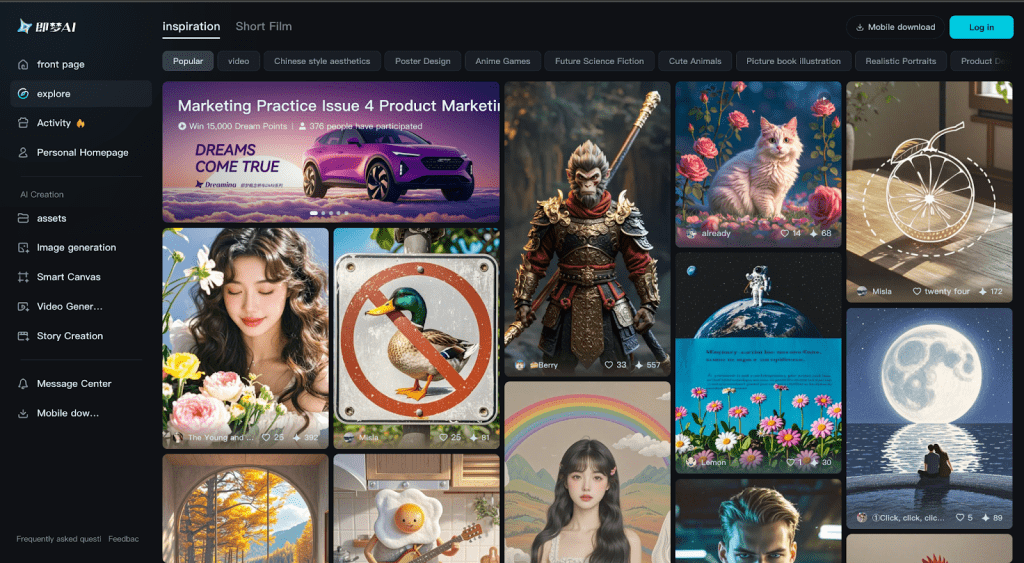By Ismanto Dodik Suyoto, Techmind.id
ByteDance, the company that transformed how we interact with social media through TikTok, introduced their latest innovation that might shake up the tech world: Jimeng AI. With the launch of this text-to-video generation platform, ByteDance demonstrated that they were not only playing in the social media field but also in the increasingly competitive arena of artificial intelligence (AI). Would Jimeng AI be able to compete with big names like OpenAI and Runway?
Since its launch in early August, Jimeng AI immediately drew attention as one of the leading AI platforms claiming to be able to transform text into high-quality images and videos. Using technology from Faceu Technology, a ByteDance subsidiary, Jimeng AI offered an entirely new capability for users to express their ideas visually by simply typing a few words. However, was this innovation truly in line with the claims being made?

The Jimeng AI dashboard. Sourced from: https://jimeng-ai.org/
The platform indeed offered something interesting, namely the ability to turn text into video or images. This feature was certainly impressive, especially for those who wanted to create content quickly and efficiently. However, there were several things to note. First, Jimeng AI was only available in China, with a fairly expensive subscription model. With a monthly subscription price of around CNY 69 (about IDR 808,000 or RM42) and an annual fee of CNY 659 (about IDR 7,726,000 or RM402), Jimeng AI was not a budget-friendly option for many users.
Controversies and Limitations
While Jimeng AI offered interesting features, there were some limitations to consider. At that time, access was only given to users with Douyin accounts, the Chinese version of TikTok. This isolated Jimeng AI from a wider global audience and limited its growth potential in the international market. Moreover, the inability to try the platform without charge underscored questions about its accessibility and appeal to new users.
However, reliance on an expensive subscription model and exclusivity to the Chinese market could be major barriers to global adoption.
There was no official information regarding the integration of Jimeng AI with Douyin (TikTok). If this platform could integrate with Douyin, it could be a big step in facilitating content creation and expanding Jimeng AI’s reach. However, until then, the Personalised Creations feature that allowed users to customize others’ work also remained mysterious.
Facing Competition
Jimeng AI entered a market already filled with various big names such as Runway and Pika AI, as well as upcoming competitors like OpenAI Sora. With the many choices available, the challenge for Jimeng AI was to differentiate itself from competitors and offer something truly unique. Although this platform had great potential, especially in the Chinese market, how it would compete in the broader global market remained an open question.
From a technological standpoint, Jimeng AI had the potential to bring innovation in the way we create and interact with visual content. However, reliance on an expensive subscription model and exclusivity to the Chinese market could be major barriers to global adoption. Additionally, issues related to features and accessibility still needed to be addressed for this platform to truly fulfill the promises that had been made.
(This article first appeared at Techmind.id here)





